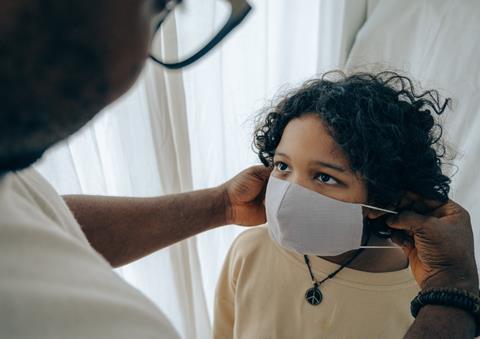Author Andrea Sarginson explains the devastating effect the Black Death had on people’s faith in the 1300s and compares it to how people responded to the COVID pandemic.

My first medieval novel was published on February 20, 2020. Soon after, I found myself in a similar position to my characters in 1349 – waiting and fearing the arrival of a devastating pandemic. I wondered if the church, would be challenged as it had been then and if people’s perception of God would be altered.
I now think our benighted counterparts were not a lot different from us in thought. They pondered if this was the end – if not of the world, of ourselves and our loved ones – just as we did. Like us, they sought causes and prevention. However, a huge difference was in the amount of medical knowledge we have today – and I wonder if that has changed how we think about God in extreme situations.
In 1300s clergy confirmed that God was bestowing the Black Death as a punishment for sins.
Medieval people were used to epidemics – diphtheria and typhus for instance. We too, know about those diseases but medical science has found ways to prevent them and they are unfamiliar to us. Covid, like the Black Death, was different. We had not experienced it before. It rattled at the door of our complacent confidence and frightened us. We asked why good people died and why similarly good people couldn’t heal them. Death became a lonely confusion of tubes, dripping and beeping things. Compassion strained behind gowns and perspex masks. Not to die was the aim. In the 1300’s a good death was the aim with the soul prepared for purgatory and peace made with God. Prayers were said in front of statues, images on walls and altarpieces. During Covid lockdown, the images that drew our prayers were on screens showing the NHS, scientists, and our secular leaders.
In the thirteen hundreds, the Christian Church was massively evident in everyone’s life. Clergy confirmed that God was bestowing the Black Death as a punishment for sins; they exhorted people to say their prayers, attend mass as many times as possible, pay for indulgences, confess, repent and so-on. They threatened a bad time after death for those who ignored guidance. Medicine with its humours, bleedings, planets and urine tasting was impotent.
Like our medieval predecessors, we have an inkling we are somehow to blame, accountable, even for a pandemic.
Today medicine is not impotent; In lockdown, hospitals stayed open, churches closed. it is harder to see disease as a punishment from God - but, like our medieval predecessors, we have an inkling we are somehow to blame, accountable, even for a pandemic. During lockdown we viewed blue skies clear of vapour trails, gazed at flower colours heighted by sun’s rays unimpeded by pollution, and listened to distant bird song not usually heard above the city’s hum. A medieval notion nagged at us – what have we done wrong?
I have no idea how people privately thought about God during the Black Death or Covid pandemics. Nevertheless, I think today we believe more firmly in a healing God rather than an angry one, who will eventually provide a cure for every disease. With that belief we strive to uncover mysteries. Through research we are confident that answers need only to be discovered and thus prevention made clear. The medieval Christian did not have such a scientific hope. God was their only hope.
Andrea Sarginson’s books are available now: Man of Glass, 2020 and Life of Glass, 2023.
































No comments yet